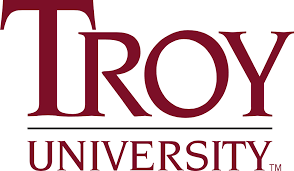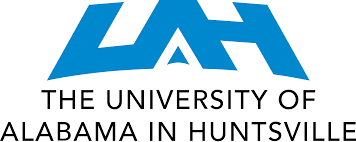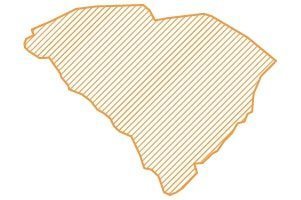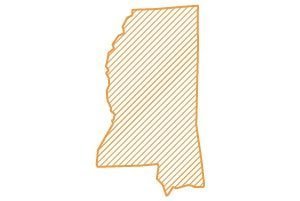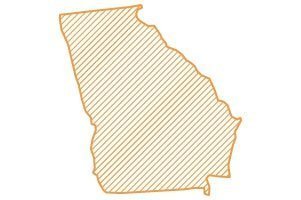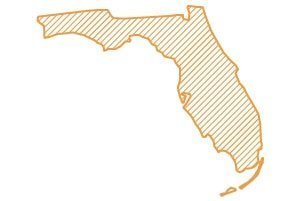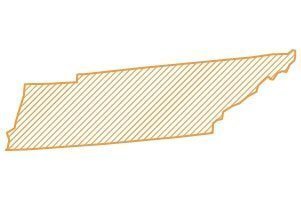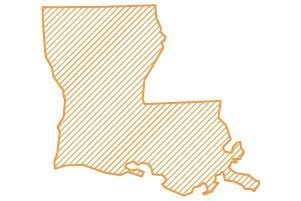In Alabama, pursuing a master’s in ABA means joining an environment where behavioral intervention is already integrated into public health and schools. The Alabama Department of Mental Health promotes programs for children and youth with autism and coordinates a statewide network that connects universities, services, and families. This setting opens the door to field experiences and potential career opportunities that complement the student’s academic journey.
In addition, the state’s universities work closely with hospitals, autism centers, and school districts, making it possible to apply learning in real-world contexts from the very beginning of training. With small cohorts and faculty who combine teaching with direct community work, Alabama offers fertile ground for those seeking applied preparation with a close-to-home impact.
Quick Facts:
- ABAI/VCS-Aligned Programs in Alabama: 4
- Fully Online ABA Master’s Programs: 1
- Average Program Length: 2 years
- Tuition Range (per unit): $440 – $1,227
ABA Masters Programs Accepting Alabama Applicants
Masters Programs in Alabama to Become a BCBA
To obtain certification as a Board Certified Behavior Analyst (BCBA®) in Alabama, students must complete a graduate program that meets the requirements of the Behavior Analyst Certification Board (BACB). This often involves:
- Completing a master’s degree in Applied Behavior Analysis, Psychology, Education, or another related field.
- Finishing the required course sequence, designed to cover the core competencies of behavior analysis.
- Completing supervised practicum hours, where each hour of experience is regulated and must follow BACB guidelines.
In Alabama, programs also provide practicum partnerships that allow students to accumulate the supervised hours required to sit for the certification exam. This process ensures that graduates receive both formal and practical preparation aligned with international standards of the profession.
Online ABA Masters Programs in Alabama
Although online options are limited, the possibility of studying in this format represents a valuable opportunity for those who need to balance their studies with work or other responsibilities. It is also especially useful for students living in remote areas who do not have sufficient time to commute to campus in person.
Through this option, students in Alabama can access updated programs with digital resources and continuous academic support, while maintaining the same educational quality as in the on-campus format.
University of Alabama
- Tuscaloosa, Alabama
- 30–36 hours
- Online
Program:
Master of Arts (MA) in Special Education
Modality: Online
Length: 30–36 credit hours (dependiendo de la concentración)
GRE Required: not specified
Tuition: $440 per credit hour (online tuition rate).
Program Overview:
Designed for professionals interested in expanding their ability to support students with diverse disabilities, this program offers several concentrations, including options related to autism and behavior analysis. These pathways allow students to tailor the curriculum to specific professional interests within the educational field.
Key Highlights
- 100% online flexibility with access to resources and academic support from the Tuscaloosa campus
- Option to choose specializations in autism, collaborative teaching, and related areas
Additional Considerations
- Includes supervised practicum in educational settings for those seeking applied experience
- Admission open to students from different education disciplines and related fields
Accreditation
- Institutional: Southern Association of Colleges and Schools Commission on Colleges (SACSCOC)
- Program-Specific: ABAI accreditation not specified (not an ABA program)
ABAI Accredited Masters Programs in Alabama
The accreditation granted by the Association for Behavior Analysis International (ABAI) represents a mark of quality in graduate training in Applied Behavior Analysis. This recognition ensures that programs meet high academic and professional standards, offering students comprehensive preparation aligned with the demands of current practice.In Alabama, there are universities with master’s programs accredited by ABAI, guaranteeing a rigorous and up-to-date curriculum, complemented by applied experiences in diverse settings. Among them is Troy University, along with other institutions that maintain this same level of academic excellence.
Auburn University
- Auburn, Alabama
- 42 hours
- Campus
Program:
Master of Science (MS) in Applied Behavior Analysis
Modality: On Campus
Length: 42 credit hours (approx. 2 years, full-time)
GRE Required: not specified
Tuition: $12,060 per semester for residents; $32,100 for non-residents (full-time load).
Program Overview:
Auburn University’s master’s in ABA stands out for its combination of intensive academic training and supervised practical experience in clinical and school settings. The program maintains collaborations with the Auburn University Psychological Services Center and specialized autism services, providing students with opportunities for direct intervention while developing competencies for BCBA® certification.
Key Highlights
- Access to practicum experiences at the Psychological Services Center and affiliated autism intervention programs
- Faculty engaged in applied research on intervention design and adaptive behavior
Additional Considerations
- Competitive admission with small cohorts to ensure personalized attention
- Opportunity to continue into doctoral studies in behavioral psychology at the same institution
Accreditation
- Institutional: Southern Association of Colleges and Schools Commission on Colleges (SACSCOC)
- Program-Specific: Verified Course Sequence (VCS) approved by ABAI
Jacksonville State University
- Jacksonville, Alabama
- 36 hours
- Campus
Program:
Master of Science (MS) in Applied Behavior Analysis
Modality: On Campus
Length: 36 credit hours
GRE Required: not specified
Tuition: $525 per credit hour for residents and $1,050 for non-residents. These costs do not include additional fees or other student expenses.
Program Overview:
Known for its strong connection with service agencies in Alabama, Jacksonville State University offers a master’s in ABA that integrates practice with academic learning early on. Students engage in applied projects and supervised experiences that strengthen their ability to intervene in clinical and educational settings. Proximity to hospitals and local service centers expands opportunities to apply theory in real-world situations.
Key Highlights
- Active collaboration with regional health and special education providers
- Thesis or applied project options that allow students to shape their professional or academic path
Additional Considerations
- Admission available in fall and spring with small cohorts
- Opportunities to participate in research on autism and experimental analysis of behavior
Accreditation
- Institutional: Southern Association of Colleges and Schools Commission on Colleges (SACSCOC)
- Program-Specific: Verified Course Sequence (VCS) approved by ABAI
No GRE Required ABA Masters Programs in Alabama
If you are looking to advance your training in ABA without having your future depend on a standardized test, Alabama offers programs that recognize other, more valuable aspects of your profile. Just as there are students with extensive training and field experience, there are universities that acknowledge and prioritize this. For that reason, they have decided not to require the GRE as part of admission to their master’s programs.
This approach opens the door for candidates with diverse backgrounds, from education to clinical practice, to be evaluated primarily on their academic and professional preparation. One of the institutions offering this alternative is Jacksonville State University, along with other universities in the state that have adopted this more inclusive vision for training future behavior analysts.
Troy University
- Troy, Alabama
- 48 hours
- Campus + Online
Program:
Master of Science (MS) in Applied Behavior Analysis
Modality: On Campus (with some courses available online)
Length: 48 credit hours
GRE Required: not specified
Tuition: $475 per credit hour for residents; $950 for non-residents.
Program Overview:
Troy University’s master’s in ABA is distinguished by the extensive supervised practice included in the curriculum, allowing students to advance in a structured way toward BCBA® certification. The university maintains partnerships with public schools, autism centers, and regional clinics, creating opportunities to work with children, adolescents, and adults in real-world settings. In addition, students may choose between a thesis track, focused on research, or an applied project that connects academic training with the resolution of concrete community problems.
Key Highlights
- Practical focus with more than 1,500 hours of supervised experience available
- Flexible pathways with the option of a thesis or applied project
Additional Considerations
- Small cohorts that facilitate close mentorship with faculty
- Connections to professional and research networks in autism and special education
Accreditation
- Institutional: Southern Association of Colleges and Schools Commission on Colleges (SACSCOC)
- Program-Specific: Verified Course Sequence (VCS) approved by ABAI
Alabama’s Most Affordable ABA Masters Programs
In Alabama, some graduate programs stand out not only for the quality of their training but also for offering more affordable tuition compared to other universities in the state. These options allow students to advance in their academic development without taking on an excessive financial burden.
Among the most affordable alternatives are two distinct options: one directly related to ABA and designed for those seeking to advance toward BCBA® certification, and another focused on behavioral and neurobehavioral processes. While the latter is not an ABA program, it is included here as a valuable graduate-level opportunity in the behavioral sciences offered in Alabama.
In this way, prospective students can choose between a pathway oriented toward professional practice in behavior analysis or broader training connected to research in neuroscience and behavioral processes.
University of Alabama in Huntsville (UAH)
- Huntsville, Alabama
- 33 hours
- Campus
Program:
Master of Science (MS) in Applied Behavior Analysis
Modality: On Campus
Length: 33 credit hours
GRE Required: not specified
Tuition: $546 per credit hour for residents and $1,227 for non-residents. These costs exclude additional fees and other student expenses.
Program Overview:
Offered by the College of Education at UAH, this master’s in ABA leverages Huntsville’s technological and scientific ecosystem to provide a unique academic context. The faculty combines clinical expertise with applied research in autism and adaptive behavior, creating training with direct impact on the local community. Students have access to partnerships with schools and clinics in the region, enhancing their professional preparation.
Key Highlights
- Access to professional networks within a high-research university center
- Close mentorship from faculty who combine applied research and clinical practice
Additional Considerations
- Full-time program with small cohorts that promote academic support
- Opportunity to collaborate on community projects addressing autism and severe behavior
Accreditation
- Institutional: Southern Association of Colleges and Schools Commission on Colleges (SACSCOC)
- Program-Specific: Verified Course Sequence (VCS) approved by ABAI
University of South Alabama
- Mobile, Alabama
- 36 hours
- Campus
Program:
Master of Science (MS) in Behavioral and Brain Sciences
Modality: On Campus
Length: 36 credit hours (approx. 2 years full-time)
GRE Required: yes
Tuition: $547 per credit hour for residents; $1,067 per credit hour for non-residents.
Program Overview:
The University of South Alabama offers a master’s in Behavioral and Brain Sciences focused on the study of cognitive and neurobehavioral processes. The curriculum places strong emphasis on methodological training and laboratory practice, preparing students to pursue doctoral studies or academic careers in scientific psychology.
Key Highlights
- Access to specialized laboratories in neuroimaging, animal learning, and human cognition
- Opportunity to collaborate on research projects often presented at national conferences
Additional Considerations
- Concentration options in neuroscience, cognition, or experimental analysis of behavior
- Requires completion of a thesis as the final degree requirement
Accreditation
- Institutional: Southern Association of Colleges and Schools Commission on Colleges (SACSCOC)
- Program-Specific: ABAI accreditation not specified (not an ABA program)
Accelerated Alabama ABA Masters Programs
Currently, Alabama does not have ABA master’s programs formally classified as accelerated. However, among the available options, the curriculum at the University of Alabama in Huntsville (UAH)) stands out for requiring 33 credits, making it one of the shortest pathways in the state.
Although it is not promoted as accelerated, this format may allow students to complete their training in a shorter time compared to other programs that often extend to 42 or even 48 credits. This difference in academic load provides an attractive alternative for those seeking to advance toward BCBA® certification within a reduced timeframe.
ABA Certificate Programs in Alabama
In Alabama, certification programs in Applied Behavior Analysis (ABA) offer an accessible option for those seeking specialized training without completing a full master’s degree. They are designed for undergraduate students and professionals who want to add applied competencies in the field of behavior.
In the state, a standout option is an undergraduate Minor that provides the opportunity to meet the academic requirements necessary to sit for the BCaBA® exam (valid through December 2026).
University of North Alabama (UNA)
- Florence, Alabama
- 18 hours
- Campus
Program:
Minor in Applied Behavior Analysis
Modality: On Campus
Length: 18 credit hours
GRE Required: not applicable (undergraduate program)
Tuition: $340 per credit hour for residents; $680 for non-residents (undergraduate rate).
Program Overview:
The ABA minor at the University of North Alabama offers undergraduate students the opportunity to gain applied competencies in behavior analysis while pursuing their primary degree. The program includes the coursework required by BACB® Pathway 2 to be eligible for the BCaBA® exam (valid through December 2026).
Key Highlights
- Enables students in psychology, education, or other disciplines to complete the academic requirements toward the BCaBA® credential
- Practical focus with courses designed to introduce behavioral assessment and intervention tools
Additional Considerations
- Available as a complement to any undergraduate major at the university
- Option to link course projects with community-based intervention needs
Accreditation
- Institutional: Southern Association of Colleges and Schools Commission on Colleges (SACSCOC)
- Program-Specific: ABAI accreditation not specified
BCBA Legislation in Alabama
Alabama requires a state license to practice as a behavior analyst. The Alabama Behavior Analyst Licensing Board, under the Department of Mental Health, has regulated professional practice since 2014.
To practice as a BCBA® or BCaBA® in Alabama, you must:
- Obtain the corresponding national certification (BACB).
- Apply for and obtain a state license through a process that includes background checks and biennial renewal.
In addition, there is mandatory coverage under HB284 for ABA services as treatment for autism in children (ages 0–18), although annual limits apply depending on the child’s age.
BCBA Demand in Alabama
The demand for certified ABA professionals is growing in Alabama. According to Research.com, the job market for BCBAs is strengthened by the recognition of ABA as a treatment for autism and behavioral challenges, and significant expansion in employment opportunities is anticipated.
As for salaries:
- ZipRecruiter estimates an average of $80,737 per year (~$38.82/hour).
- Indeed reports an average of $73,439 annually, with ranges reaching up to $115,000 at certain employers such as autism centers or schools in regions like Montgomery, Birmingham, and Huntsville.
BCBA roles in Alabama span positions in schools, clinics, hospitals, home-based care, and community programs, reflecting a diversified and expanding demand.
ABA and BCBA Programs in Alabama
| Degree Title | University Name | Program Length | Program Cost | ABAI Recognition | GRE Required | City | State |
|---|---|---|---|---|---|---|---|
| B.A. in Psychology (ABA Track) | University of Alabama at Birmingham (UAB) | 8 (4 years) | ~$357 per credit (in-state) | VCS Approved | No | Birmingham | AL |
| M.S. in Applied Behavior Analysis | University of Alabama at Birmingham (UAB) | 5-6 | ~$494 per credit (in-state) | ABAI Accredited & VCS Approved | No | Birmingham | AL |
| M.S. in Psychology – ABA Track | Jacksonville State University | 4-5 | ~$400 per credit (in-state) | VCS Approved | No | Jacksonville | AL |
| Graduate Certificate in ABA | Jacksonville State University | 2-3 | ~$400 per credit (in-state) | VCS Approved | No | Jacksonville | AL |
| Graduate Certificate in ABA | University of Alabama at Birmingham (UAB) | 2-3 | ~$494 per credit (in-state) | ABAI Accredited & VCS Approved | No | Birmingham | AL |
| M.S. in Counseling Psychology (ABA Focus) | Troy University | 5-6 | ~$475 per credit (in-state) | University Accredited | Yes | Troy | AL |




